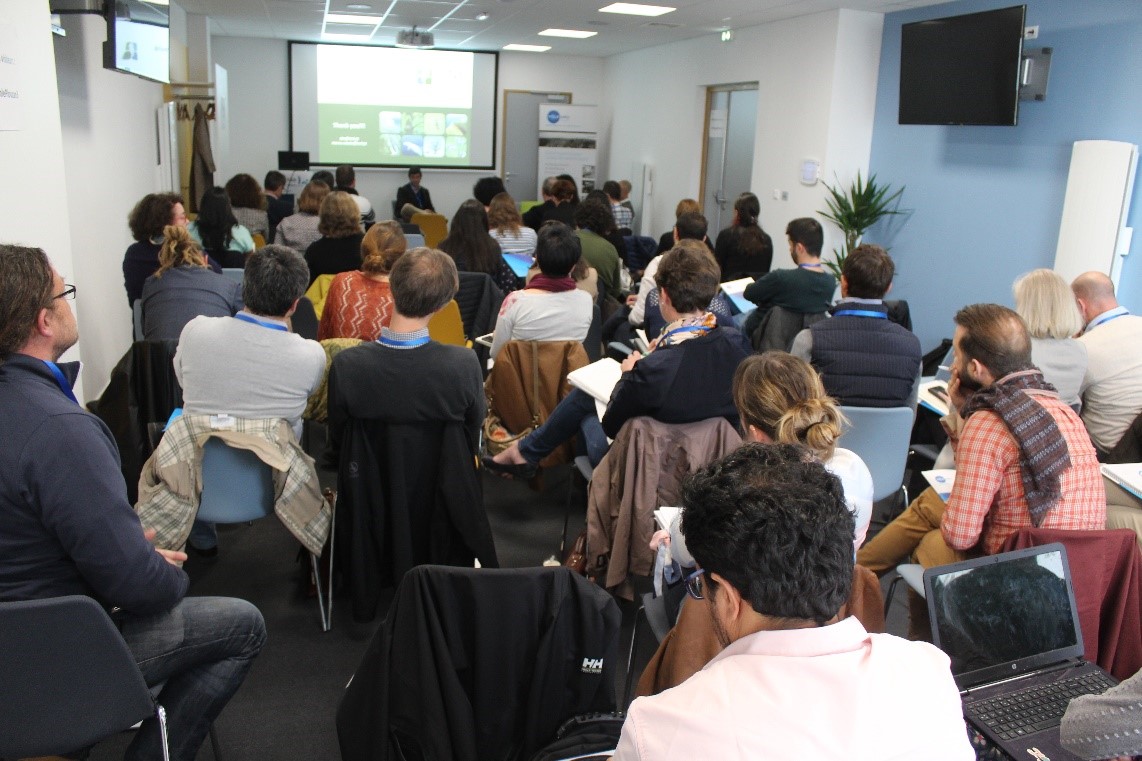Practical steps for facilitating the use of marine biological resources for commercial R&D in the context of the new Access and Benefit Sharing legal framework (Nagoya protocol)
The workshop was organized in the context of the Interreg Atlantic Area EBB project and the activities of the European research infrastructure EMBRC-ERIC as a marine bioresource provider in Plouzané, Brest, Brittany. Brittany was selected for the logistic help and support provided by Le Pôle Mer Bretagne Atlantique and the research and technology transfer landscape around marine biotechnology in the Region, with a wide spectrum of companies with interest, and concerns, on the ABS regulation framework. The aim of the workshop was to connect companies, marine culture collections/biobanks and ABS national contact points, and it was primed by a previously prepared/circulated on-line questionnaire on awareness of companies on ABS legislation. The knowledge of companies on the ABS framework was to be analyzed, together with the future needs on access to marine genetic resources (MGRs), bringing them to a higher level of awareness. The final outcome of the workshop should be a series of flagship use-cases proposed by the companies to be beta-tested for them by the EBB in the light of the ABS framework.
A total of 50 participants registered for the workshop who received the welcome of Philippe Monbet (Deputy Director of Le Pôle Mer Bretagne Atlantique) and of Justine Pittera and Ibon Cancio, as organisers of the workshop. After presenting the aims of the workshop, Florence Guillot (Access and communication officer of EMBRC-ERIC) presented the vision and mission of EMBRC-ERIC, and Antonio Villanueva (EBB project coordinator) presented the goals of the EBB project and EMBRC-ERIC culture collections and biobanks.
These introductory presentations lead to a first informative session by the ABS focal points, in relation to the 3 pillars of the ABS regulations: Access, Benefit Sharing and Compliance. The common umbrella of the ABS regulatory framework, with its implication on access to MGR was presented through teleconference by Alicja Kozlowska (Desk Officer for ABS and member of DG-ENV). The ABS access pillar was presented from the point of view of two countries with ABS legislation in place (France and Spain) and one without national legislation adopted (Portugal), through their respective national contact points (Florence Hervatin-Queney, Mª Carmen Fernández and Marco Rebelo).
The following speakers focused their presentation in practical issues from the point of view of culture collections (Philippe Desmeth from World Federation of Culture Collections), research and technology transfer projects (Dr Oonagh Mcmeel from Seascape Belgium and INMARE), companies (Bruno David from Pierre Fabre) and science parks (Pierre Colas from Blue Valley in Roscoff) working with MGRs. They addressed the needs of the different collectives regarding ABS regulations, pointing to issues as due diligence, benefit sharing through capacity building and the need for legal clearance for commercial users of MGRs. Finally, Ibon Cancio (EMBRC-Spain) presented the results of an EBB questionnaire to the industry working with MGRs in Portugal, Spain, France and UK to test their awareness and knowledge on ABS regulations. The questionnaire showed the high degree of unawareness and lack of knowledge in the private sector.
Following discussions with audience also revealed this lack of knowledge. At the level of the culture collections the suitability of seeking registration in the EU registry of collections was discussed, and not seen as very positive and feasible. No common pan-European collection can be registered as registration is asked, evaluated and granted at the national level. The approval of best practice guidelines in any case is evaluated at the EU commission level.
Discussion with companies did not result in use cases being presented (for lack of knowledge on the ABS regulation or due to the fact that IPR issues are problematic in this kind of open discussion), that EBB collections could test to learn by doing. This exercise should allow to introduce solutions concerning specifically the commercial use of MGRs in the best practice guidelines. It was decided that the collections will have to contact their usual commercial users, to know first-hand on their future needs regarding access to MGRs.
This one day workshop, open to academic and commercial users of marine genetic resources, lead then to a second day workshop (17th of may) for EBB partners, to discuss on practicalities regarding registration and best practice guidelines.

